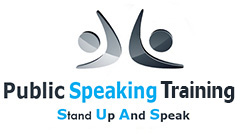- Poor preparation (yourself, your message, the environment, no audience engagement). Always use incremental preparation for a key speaking event rather than trying to put it all together the night before
- Not exerting control over your speech, i.e. try to organise as much as possible to your advantage, e.g. time of speech, presentation medium
- Not engaging or contracting with your audience from the outset, i.e. topic to be covered, length of speech, when you will take questions, any hand-outs etc.
- Not profiling your audience – who is likely to attend; what’s their agenda or expectations; what type of questions could crop up; what questions do I want to answer; are there any objections that I need to consider that could sabotage the impact of my speech
- No testing all the technology, i.e. the more you use, the more that’s likely to go wrong
- Not having a contingency in place in case the technology lets you down (back up laptop / spare projector / back up slides on memory stick / hard copies etc)
- Not building your speech / presentation to allow for over-runs, e.g. you’ve been asked to cut your 30 min presentation to 10 mins because the previous speaker has run way over
- Straying from the theme or topic at hand, some speakers drift into other areas that aren’t part of the core speech
- Not being comfortable with different presentation media, e.g. what happens if you have to use a roving or lapel microphone / video conference calls / informal updates where you can’t use your laptop or powerpoint etc.
- Underestimating the things that can happen when you’re very nervous and how to counteract this. Adrenaline which is a natural consequence of nerves can affect us all very differently and you need to understand and prepare for this.
- Your timing is completely off, i.e. either too short or way too long
- Poor research of your topic, i.e. giving the audience the impression that you’re an expert on something only to find that you can’t answer simple questions on the topic after the speech
- Poor body language or annoying habits that distract your audience, e.g. clicking pens, continuous use of words such as emmh, like, you know etc.
- Losing your audience through:
- boring slides filled with size 8 font text
- speaking in too softly where the audience can’t hear you
- speaking without passion or vocal variety
- no audience participation, checking or engagement whatsoever
- lack of eye content
- not using stories, statistics, quotations to support your talk
- no ‘holding’ questions in reserve to re-energise your audience
- offensive or insensitive remarks that can lose you your audience
- Finally, always ask yourself what’s the worst case scenario and then see what steps you can take to deal with this eventuality should it happen. The key point here is rational thinking at all times.
Dermot Goode is the founder of www.publicspeakingtraining.ie and the SUAS (Stand Up & Speak) public speaking programmes.
He can be contacted at This email address is being protected from spambots. You need JavaScript enabled to view it. or 086 3890560.

